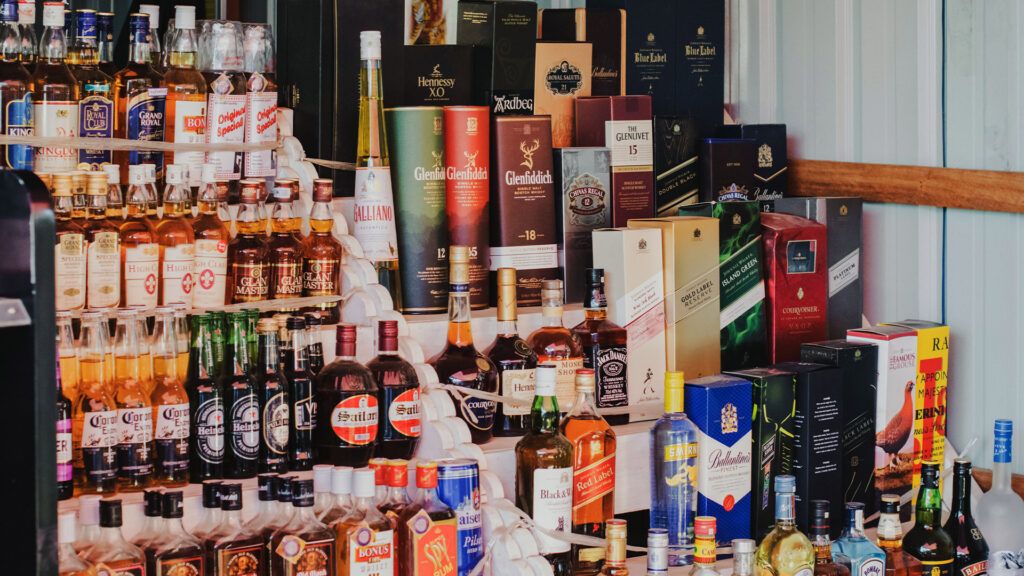Alcohol consumption is a well-established risk factor for several types of cancer. The degree of risk often correlates with the amount of alcohol a person consumes.
Research has shown that alcohol consumption is a significant risk factor for a variety of cancers.
This article looks at the link between alcohol and cancer risk.

The types of cancer that researchers
- Breast cancer: Alcohol use can
increase the risk of breast cancer, possibly due to its effects on estrogen levels. - Liver cancer: Chronic alcohol consumption
can lead to cirrhosis, a significant risk factor for liver cancer. - Colorectal cancer: There is evidence linking alcohol consumption to an
increased risk of cancers of the colon and rectum. - Esophageal cancer: Drinking alcohol, especially when people combine it with smoking, significantly increases the risk of esophageal cancer.
- Head and neck cancers: This
includes cancers of the oral cavity, pharynx, and larynx. The risk is particularly high in individuals who consume alcohol and also smoke. - Stomach cancer: Some studies suggest a link between alcohol and an
increased risk of stomach cancer, though the evidence is less clear than for other types.
Alcohol raises cancer risk through several biological mechanisms:
- Producing acetaldehyde: When the body metabolizes alcohol, it
produces acetaldehyde, a toxic chemical and probable human carcinogen. Acetaldehydecan damage DNA and proteins, leading to mutations that increase the risk of cancer. - Generating free radicals and causing oxidative stress: Metabolizing alcohol generates reactive oxygen species (free radicals), which
can damage DNA, proteins, and cell membranes, potentially leading to cancer. - Impairing absorption of nutrients: Alcohol consumption
can impair the body’s ability to absorb and utilize various nutrients that protect against cancer, such as folate and vitamins A, B, C, D, and E. - Increasing estrogen levels: Alcohol
can increase levels of estrogen, a hormone associated with the risk of breast cancer. - Damaging the liver: Chronic alcohol use
can lead to cirrhosis. This condition dramaticallyincreases liver cancer risk due to the liver’s impaired ability to detoxify harmful substances and regulate hormones and other factors. - Enhancing the effects of other harmful chemicals: Alcohol can act as a solvent, enhancing the body’s exposure to tobacco and other carcinogens. For example, alcohol in the mouth and throat can increase the tissues’ exposure to tobacco-related carcinogens in smokers.
- Causing direct tissue damage: Alcohol
can directly irritate and damage the cells lining the mouth, throat, and esophagus. In response to this damage, cells can undergo changes that increase cancer risk.
Both tobacco smoke and alcohol can damage the DNA in cells. When people use them together, they can cause more extensive genetic damage, leading to mutations that increase the risk of cancer.
People who use both alcohol and tobacco face a much
These cancers
Genetics play a significant role in determining a person’s risk of developing alcohol-related cancers.
Some people have variants in different genes,
These differences lead to different rates of alcohol and acetaldehyde metabolism. This can influence a person’s risk of developing alcohol-related cancers.
For example, certain ALDH variants,
Genetic differences in hormonal regulation can influence how alcohol
For instance, variations in genes related to estrogen metabolism and response can modify the risk in females who consume alcohol.
Understanding individual genetic risks can help in making informed decisions about alcohol consumption and cancer prevention strategies.
Additionally, people with a family history of certain cancers may need to be particularly cautious about alcohol intake.
Here are the answers to some commonly asked questions about alcohol and cancer risk.
Can drinking red wine prevent cancer?
No conclusive evidence exists to suggest that drinking red wine, or any alcohol, can help prevent cancer.
Some studies indicate that compounds in red wine, such as resveratrol,
Most health guidelines recommend moderation or abstention from alcohol to reduce cancer risk.
What happens to a person’s cancer risk after they stop drinking alcohol?
After stopping alcohol consumption, a person’s cancer risk
The risk reduction depends on several factors, including the type of cancer, the amount and duration of previous alcohol use, and other individual health factors.
However, some risks may persist, especially if there has been heavy or long-term alcohol use.
Is it safe to drink alcohol during chemotherapy?
It is generally advisable to avoid or limit alcohol during chemotherapy.
Alcohol
People should consider discussing their alcohol use with a healthcare team to understand the specific implications for their treatment and overall health.
Public health guidelines generally advise moderation in alcohol consumption or complete abstinence to reduce the risks of developing cancer.
As with any health-related issue, individual risks can vary, and it is best to consider personal and family medical history when making decisions about alcohol consumption.
